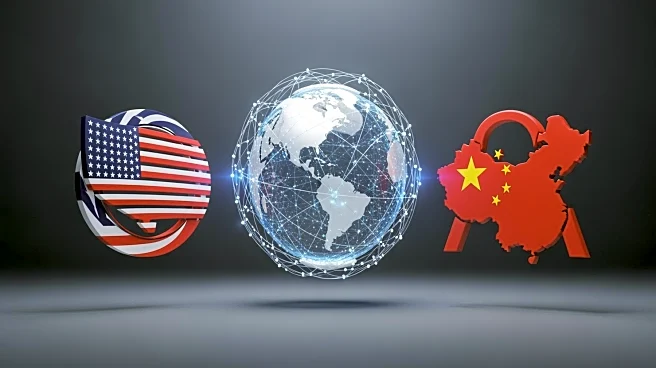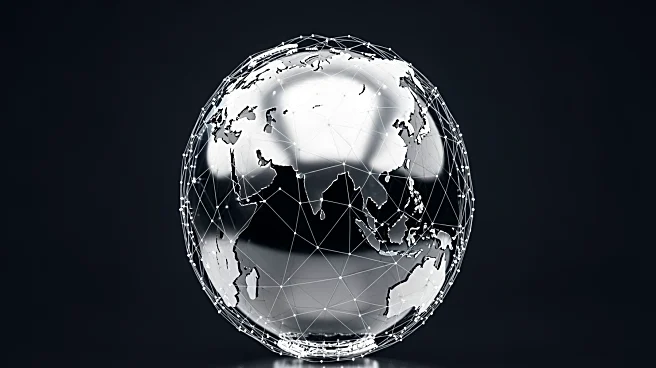What's Happening?
President Trump has reignited the 'G2' concept in U.S.-China relations through a Truth Social post, signaling a potential shift in diplomatic strategy. The term 'G2', or Group of Two, was originally proposed by economist C. Fred Bergsten in 2005 to emphasize
the importance of dialogue between the two major economies. Trump's recent use of the term during a summit with Chinese President Xi Jinping in South Korea has raised concerns among U.S. allies. The concept suggests a power equilibrium between the U.S. and China, which Beijing has long desired as it seeks to expand its global influence. Trump's administration has yet to clarify its China policy, leaving analysts and observers to speculate on the implications of this revived terminology.
Why It's Important?
The revival of the 'G2' concept by President Trump could have significant implications for global diplomacy and U.S. foreign policy. Allies of the United States, particularly in Asia, are concerned that this approach may lead to bilateral agreements that could disadvantage them. The term implies that the U.S. and China are peers on the global stage, potentially sidelining other nations in decision-making processes. This shift could alter the balance of power in international relations, affecting trade, security, and diplomatic alliances. The move has been met with mixed reactions, with some viewing it as a necessary cooperation between two superpowers, while others fear it may undermine multilateral efforts and existing alliances.
What's Next?
The use of the 'G2' term by President Trump is likely to provoke discussions and strategic recalibrations among U.S. allies and partners. Countries such as Japan, Australia, and India may seek reassurances from the U.S. regarding their roles and interests in the region. The Trump administration may need to address these concerns to maintain strong alliances and prevent diplomatic rifts. Additionally, the U.S. and China may engage in further dialogues to define the parameters of their relationship, balancing cooperation with competition. Observers will closely watch for any formalization of the 'G2' concept and its impact on global governance structures.
Beyond the Headlines
The revival of the 'G2' concept could have deeper implications for global governance and the international order. It challenges the traditional multilateral frameworks that have governed international relations, potentially leading to a more bipolar world. This shift may influence global economic policies, security arrangements, and diplomatic strategies. The concept also raises ethical questions about the concentration of power and decision-making in the hands of two nations, potentially marginalizing smaller countries and regional groups. Long-term, this could reshape the dynamics of international cooperation and competition, with lasting effects on global stability and prosperity.















